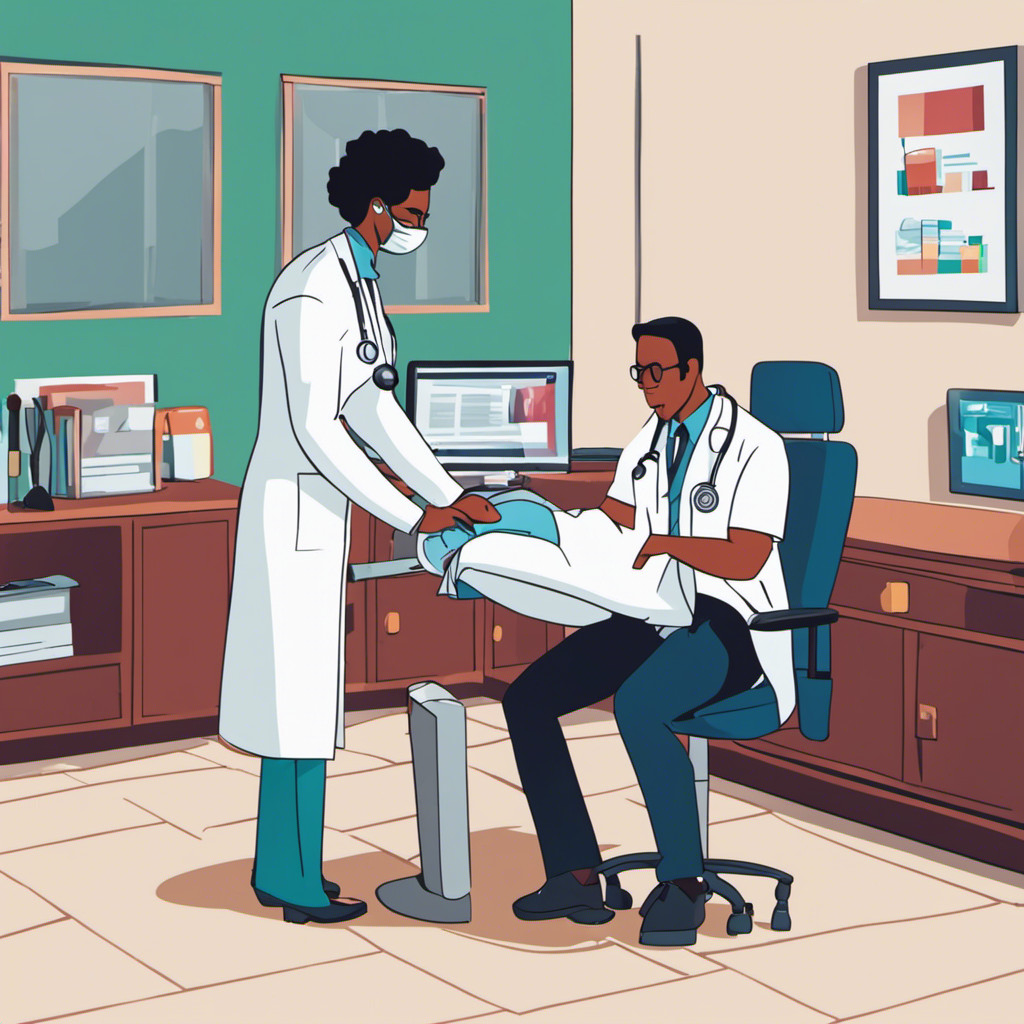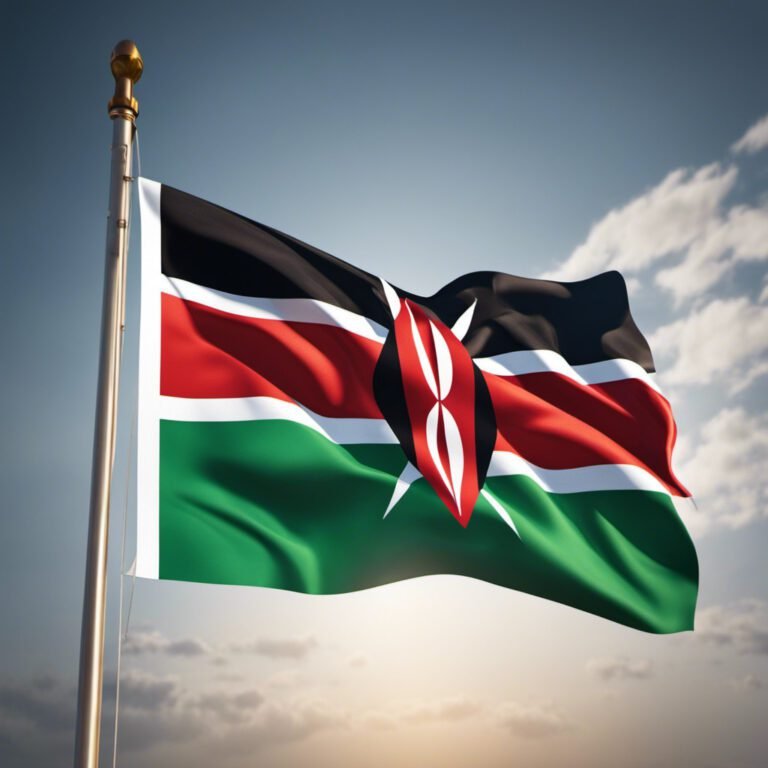How Has Kenya Addressed Issues Of Healthcare Access And Quality?
Have you ever wondered how Kenya has tackled the challenges of healthcare access and quality? In a country where providing healthcare services to its population can be a daunting task, Kenya has made significant strides to bridge the gap between healthcare access and quality. Through various initiatives and reforms, the nation has worked towards ensuring that its citizens have affordable and accessible healthcare services while also improving the overall quality of healthcare. Let’s explore how Kenya has addressed these critical issues and the impact it has had on its healthcare system.
Investment in Healthcare Infrastructure
Construction of new hospitals and healthcare facilities
The Kenyan government has recognized the importance of investing in healthcare infrastructure to improve access and quality of healthcare services. A significant step towards addressing this issue has been the construction of new hospitals and healthcare facilities across the country. These new facilities are equipped with modern equipment and technology, allowing for better diagnosis and treatment of diseases.
Expansion and renovation of existing healthcare facilities
In addition to building new healthcare facilities, Kenya has also focused on expanding and renovating existing ones. This approach helps to increase the capacity of these facilities and accommodate a larger number of patients. By upgrading existing infrastructure, the government ensures that healthcare services can reach more people, especially in areas where access to healthcare was previously limited.
Improvement of healthcare equipment and technology
Another key aspect of improving healthcare access and quality in Kenya is the continuous upgrade and improvement of healthcare equipment and technology. The government has invested in state-of-the-art medical equipment such as diagnostic machines, imaging technology, and surgical tools. This ensures accurate and timely diagnosis, leading to better treatment outcomes. Upgrading technology also includes the implementation of electronic medical records (EMR) systems, which enhance the efficiency of healthcare delivery and information management.
Healthcare Financing
Implementation of Universal Health Coverage (UHC)
Kenya has made strides in addressing healthcare access and quality through the implementation of Universal Health Coverage (UHC). UHC aims at providing every citizen with access to essential healthcare services without suffering financial hardship. The government has worked towards achieving this goal by enrolling individuals and families in the National Hospital Insurance Fund (NHIF), which eases the financial burden of healthcare expenses. Under UHC, a wide range of healthcare services, including preventive, curative, and rehabilitative care, are covered.
Health insurance schemes
To further enhance healthcare access and quality, Kenya has implemented various health insurance schemes. These schemes provide coverage for medical expenses and ensure that individuals can receive the necessary healthcare services without facing financial barriers. The government has introduced voluntary health insurance schemes that allow individuals to choose the best coverage option for their needs. Additionally, employers are encouraged to offer health insurance coverage to their employees, providing further support for healthcare financing.
Public-private partnerships for healthcare funding
Kenya has also fostered public-private partnerships to address healthcare financing. These partnerships aim to leverage private investment and expertise to improve healthcare access and quality. By collaborating with private entities, the government can leverage additional resources to fund healthcare infrastructure, medical equipment, and other essential components of the healthcare system. This approach helps to bridge the gap between available resources and the growing healthcare needs of the population.
Healthcare Workforce
Training and hiring of healthcare professionals
To address the issue of healthcare access and quality, Kenya has focused on training and hiring healthcare professionals. The government has increased the number of medical schools and universities offering healthcare-related courses to produce a skilled workforce. Through collaborations with international organizations and donations, scholarships are provided to individuals interested in pursuing healthcare careers. This ensures an adequate supply of trained professionals to meet the healthcare needs of the population.
Incentives and scholarships to encourage healthcare students
Recognizing the importance of attracting and retaining healthcare professionals, Kenya offers incentives and scholarships to encourage students to pursue healthcare careers. These incentives include financial support, career development opportunities, and other benefits. By providing these incentives, the government aims to address the shortage of healthcare professionals in certain regions or specialized fields. This strategy helps to improve access to quality healthcare services, especially in underserved areas.
Improvement of working conditions and career development opportunities
In addition to attracting and training healthcare professionals, Kenya has also focused on improving working conditions and career development opportunities in the healthcare sector. This includes providing competitive salaries, ensuring safe and supportive working environments, and offering opportunities for professional growth and advancement. By investing in the well-being and career development of healthcare professionals, Kenya aims to retain and motivate a highly skilled workforce, ultimately enhancing the quality of healthcare services.
Healthcare Policy and Legislation
Development and implementation of national healthcare policies
Kenya has developed and implemented national healthcare policies to guide the delivery of healthcare services and promote equitable access. These policies aim to ensure that healthcare services are accessible, affordable, and of high quality across the country. By establishing clear policy frameworks, the government can address healthcare disparities, prioritize disease prevention and control, and improve the overall healthcare system.
Enactment of laws to address healthcare access and quality
In addition to healthcare policies, Kenya has enacted laws to address healthcare access and quality. These laws serve as a legal framework for healthcare provision, patient rights, and health system regulation. By establishing legal requirements, the government can ensure that healthcare facilities meet specific standards, healthcare professionals adhere to ethical practices, and patients receive adequate care. These laws play a vital role in protecting the rights and well-being of individuals seeking healthcare services.
Regulation of healthcare standards and practices
To ensure the provision of high-quality healthcare services, Kenya has put in place regulations and standards for healthcare facilities and professionals. Through regulatory bodies such as the Kenya Medical Practitioners and Dentists Council (KMPDC) and the Kenya Pharmacy and Poisons Board, the government ensures that healthcare facilities maintain specified standards and that healthcare professionals adhere to ethical practices. Regulation plays a crucial role in ensuring accountability, patient safety, and the delivery of quality healthcare services.
Healthcare Information Systems
Implementation of electronic medical records (EMR) systems
Kenya has invested in the implementation of electronic medical records (EMR) systems to enhance the efficiency and quality of healthcare services. EMR systems facilitate the digitization of patient records, enabling healthcare providers to access and exchange information seamlessly. This improves the coordination of care, reduces errors, and enhances the overall patient experience. By embracing technology, Kenya aims to improve healthcare access and quality through streamlined information management.
Healthcare data management and analysis
In addition to implementing EMR systems, Kenya has focused on healthcare data management and analysis. Collecting and analyzing healthcare data provides valuable insights into population health trends, disease patterns, and healthcare utilization. This information helps in identifying areas for improvement, developing evidence-based healthcare policies, and allocating resources effectively. By utilizing data-driven decision-making, Kenya can enhance healthcare access and quality in a targeted and efficient manner.
Use of telemedicine and mobile health applications
To further improve healthcare access, Kenya has embraced telemedicine and mobile health applications. These technologies allow for remote consultation, diagnosis, and treatment, especially in underserved areas where access to healthcare facilities is limited. Telemedicine and mobile health applications enable individuals to seek medical advice and services through digital platforms, reducing the need for physical visits. By leveraging technology, Kenya can bridge geographical barriers and improve the reach of healthcare services.
Public Health Initiatives
Disease prevention and control programs
Kenya has implemented various disease prevention and control programs to improve public health outcomes. These programs focus on raising awareness, promoting healthy behaviors, and controlling infectious diseases. Examples include vaccination campaigns, HIV/AIDS prevention initiatives, malaria control programs, and efforts to combat other communicable diseases. By prioritizing preventive measures, Kenya aims to reduce the burden of diseases, improve overall health, and enhance healthcare access and quality.
Immunization campaigns
Immunization campaigns play a crucial role in preventing and controlling vaccine-preventable diseases. Kenya has prioritized immunization programs to protect individuals, especially children, from diseases such as polio, measles, and tetanus. These campaigns aim to reach all segments of the population, including those in remote and underserved areas. By ensuring high vaccine coverage rates, Kenya improves both individual and population health outcomes, reducing the need for healthcare services related to vaccine-preventable diseases.
Health education and awareness campaigns
Health education and awareness campaigns are essential in promoting healthy behaviors and empowering individuals to make informed decisions about their health. Kenya has implemented various campaigns to educate the public on topics such as nutrition, hygiene, family planning, and the prevention of non-communicable diseases. By promoting health literacy and raising awareness, these campaigns help individuals make healthier choices, reducing the burden on healthcare services and improving overall public health.
Partnerships and Collaboration
Engagement with international organizations and donors
Kenya actively engages with international organizations and donors to address healthcare access and quality. By partnering with organizations such as the World Health Organization (WHO) and the United Nations International Children’s Emergency Fund (UNICEF), Kenya can access technical expertise and financial resources to support healthcare initiatives. These partnerships help to strengthen the healthcare system, improve healthcare infrastructure, and enhance the delivery of healthcare services.
Collaboration with NGOs and philanthropic foundations
Kenya also collaborates with non-governmental organizations (NGOs) and philanthropic foundations to address healthcare access and quality. These partnerships focus on specific health issues and target vulnerable populations. NGOs and philanthropic foundations provide funding, expertise, and resources to support healthcare programs and initiatives. By working together, Kenya and these organizations can reach more individuals, improve healthcare outcomes, and create sustainable healthcare solutions.
Mutually beneficial partnerships with other countries
Kenya recognizes the value of mutually beneficial partnerships with other countries to address healthcare challenges. These partnerships often involve exchange programs, capacity-building initiatives, and knowledge-sharing. By collaborating with countries that have well-established healthcare systems, Kenya can learn from their experiences and implement best practices. Similarly, Kenya contributes its expertise and knowledge to other countries, fostering global cooperation in improving healthcare access and quality.
Rural Healthcare Access
Mobile healthcare clinics and outreach programs
Addressing healthcare access in rural areas is a priority for Kenya. To reach remote communities, mobile healthcare clinics and outreach programs have been implemented. These initiatives involve setting up temporary clinics that travel to underserved areas, providing medical services and health education. Mobile clinics offer essential healthcare services, including primary care, preventive screenings, and immunizations. By establishing a presence in rural communities, Kenya improves healthcare access for individuals who would otherwise have limited options.
Training and deployment of community health workers
To ensure sustained healthcare access in rural areas, Kenya invests in the training and deployment of community health workers (CHWs). CHWs are individuals from local communities who receive basic healthcare training to deliver primary healthcare services. They serve as a vital link between the community and formal healthcare systems, improving access and providing culturally sensitive care. By utilizing CHWs, Kenya extends the reach of healthcare services and promotes community engagement in healthcare decision-making.
Infrastructure development in rural areas
Improving healthcare access in rural areas also involves infrastructure development. Kenya has invested in building and upgrading healthcare facilities in rural regions, ensuring that individuals have access to essential healthcare services closer to their homes. Additionally, the government has focused on improving transportation networks to facilitate the movement of patients to and from healthcare facilities. These infrastructure initiatives help to reduce geographic barriers and increase healthcare access in underserved rural areas.
Medical Research and Innovation
Investment in medical research institutions and programs
Kenya recognizes the importance of medical research in advancing healthcare access and quality. The government has invested in medical research institutions and programs, empowering researchers to explore new treatments, study disease patterns, and develop innovative healthcare solutions. By supporting medical research, Kenya contributes to the global body of knowledge and drives the development of evidence-based healthcare practices tailored to the country’s unique healthcare landscape.
Encouragement of innovation in healthcare
In addition to research, Kenya encourages innovation in healthcare. The government supports initiatives that promote the development and implementation of innovative healthcare solutions. This includes technologies that improve healthcare delivery, increase efficiency, and enhance patient outcomes. By fostering a culture of innovation, Kenya can overcome challenges related to healthcare access and quality, ultimately benefiting the population.
Translation of research findings into policy and practice
To ensure that research findings translate into tangible improvements in healthcare access and quality, Kenya focuses on translating research into policy and practice. Effective dissemination of research findings is crucial to inform healthcare policies and guide decision-making. By incorporating evidence-based practices into healthcare policies, Kenya can optimize resource allocation, improve healthcare protocols, and enhance the overall healthcare system’s performance.
Monitoring and Evaluation
Establishment of monitoring systems for healthcare access and quality
Kenya recognizes the importance of monitoring healthcare access and quality to identify gaps and assess progress. The government has established monitoring systems that track key indicators and measure healthcare outcomes. These monitoring systems help to identify areas where improvements are needed, enabling targeted interventions. By regularly monitoring healthcare access and quality, Kenya can ensure that resources are allocated appropriately and that healthcare services are meeting the needs of the population.
Regular assessment and evaluation of healthcare programs
To drive continuous improvement, Kenya conducts regular assessments and evaluations of healthcare programs. This includes evaluating the effectiveness and impact of specific interventions, identifying areas for improvement, and adapting strategies accordingly. Regular assessments help to identify successful initiatives that can be scaled up and shared as best practices. By evaluating healthcare programs, Kenya can ensure that resources are utilized efficiently and that healthcare access and quality are continuously improved.
Feedback mechanisms for healthcare improvement
Kenya has implemented feedback mechanisms to engage with healthcare providers, patients, and the public to gather input and identify areas for improvement. These feedback mechanisms include surveys, suggestion boxes, and community engagement sessions. By actively seeking feedback, Kenya can address concerns, address gaps in healthcare services, and make necessary adjustments to improve healthcare access and quality. This participatory approach enhances accountability and ensures that healthcare services are responsive to the needs of the population.
In conclusion, Kenya has made significant efforts in addressing healthcare access and quality through various strategies. By investing in healthcare infrastructure, financing, workforce development, policy and legislation, information systems, public health initiatives, partnerships, rural healthcare access, medical research and innovation, and monitoring and evaluation, Kenya aims to improve healthcare outcomes and ensure that every individual has access to quality healthcare services. These comprehensive approaches reflect the government’s commitment to addressing healthcare challenges and building a robust healthcare system that serves the needs of the population. With continued dedication and collaboration, Kenya has the potential to achieve further advancements in healthcare access and quality.







